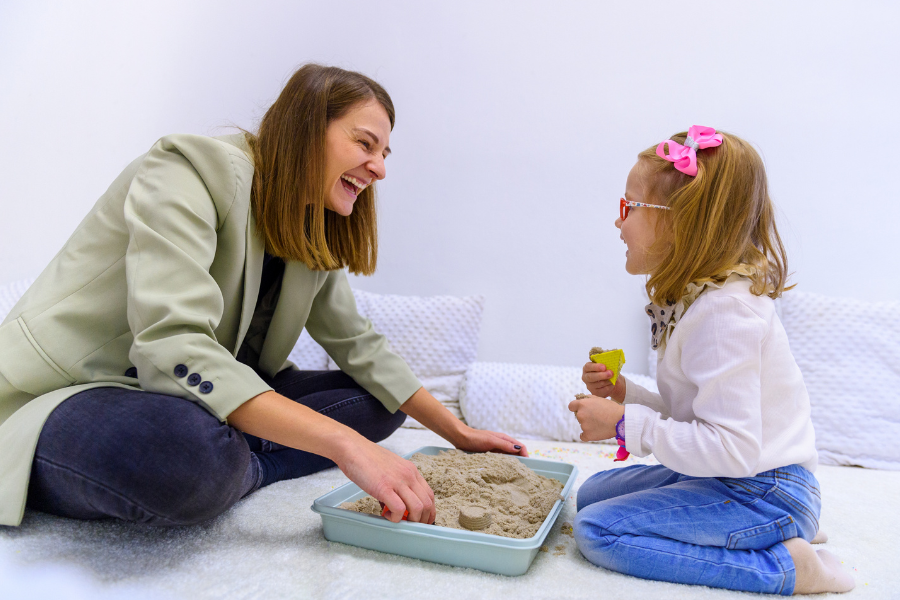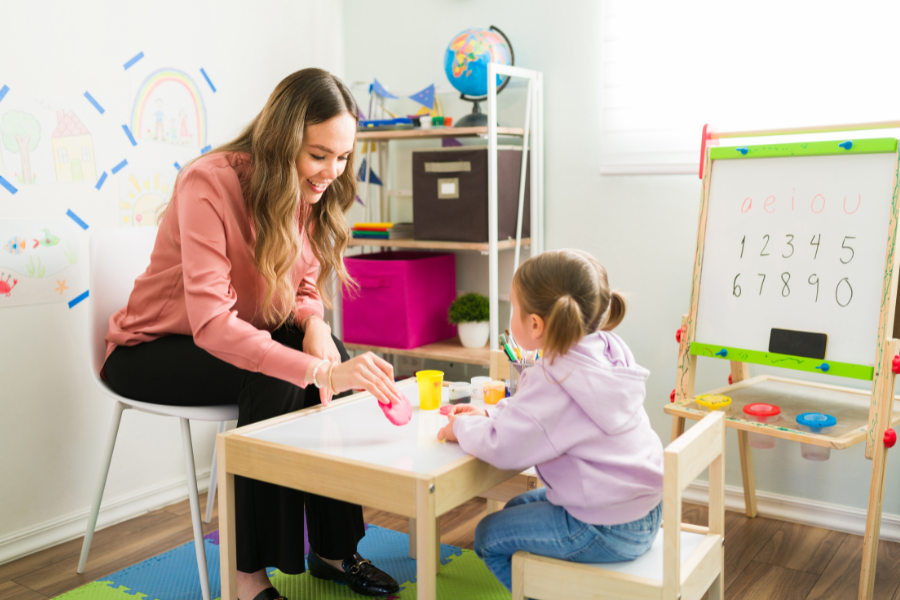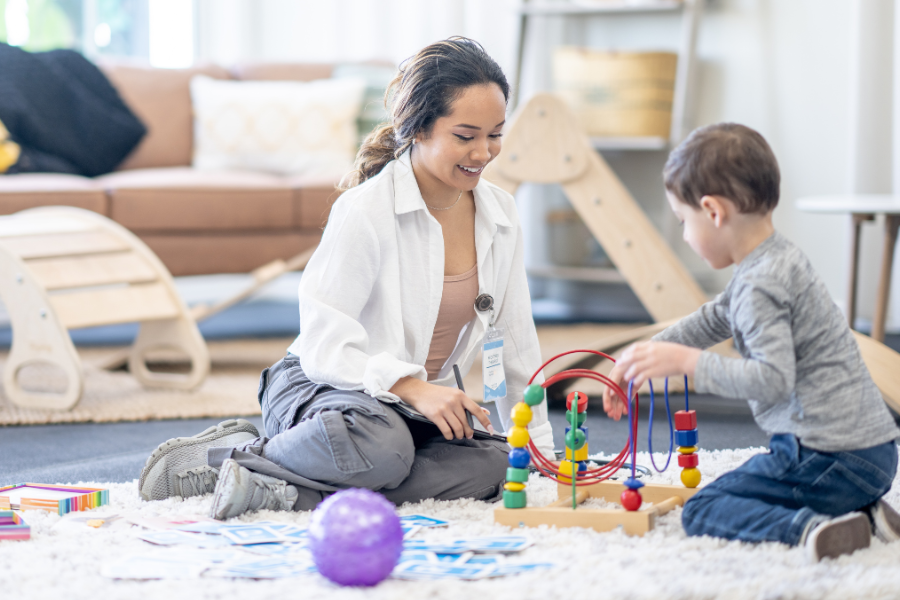
Is your child struggling with big emotions, difficult experiences, or simply navigating life's ups and downs? Play therapy might be the key to unlocking their inner strength and fostering emotional well-being. This FAQ guide will help you understand the benefits and process of play therapy, empowering you to make the best choices for your child's mental health.
What is Play Therapy?
The Association for Play Therapy defines play therapy as a theoretical model of counseling where an interpersonal process is developed using the therapeutic powers of play to help clients prevent or resolve psychosocial challenges and improve a child’s well-being.
How Do I Know if Play Therapy is Right for My Child?

Children often face challenges throughout their lives, whether it's difficulty making friends, managing big emotions, or coping with significant changes like a move or divorce. Play therapy is an effective approach to help children navigate these tough times. As the universal language of children, play enables them to explore and express their experiences in a meaningful way.
Why Choose Play Therapy with Child Counseling?
Play therapy is one of the most empirically validated forms of counseling for children and families. Through play, children can:
- Learn about their world, gain perspective, and express their insights.
- Explore how things work and express themselves through creative modalities.
- Develop new physical, cognitive, and social skills.
- Work through their problems in a safe, secure, and healthy environment.
How Often Should Children Attend Sessions?
Play therapy is a highly individualized process, but it is generally recommended that children attend sessions at least once a week during the initial phase of therapy. This allows for the development of a strong therapeutic relationship between the child and the therapist. Once trust is built and progress is made, the frequency of sessions can be adjusted to suit the child's needs and therapeutic goals.
What Are the Signs That a Child Might Benefit from Counseling?

Play therapy is beneficial for a wide range of social, emotional, and behavioral challenges. Research supports its effectiveness for children experiencing issues such as anxiety, mood disturbances, separation anxiety, coping with divorce, trauma, ADHD, low self-esteem, impulsivity, grief and loss, life transitions, chronic illness, developmental delays, and more.
What Should I Look for in a Play Therapist?
The most important quality in a play therapist is a deep understanding and compassion for working with children and their families. A skilled play therapist recognizes each child's uniqueness and knows how to build a strong rapport—essential for a successful therapeutic process. This connection lays the foundation for the progress that will be made during therapy.
How Long Does Play Therapy Take, and How Often Should Children Attend Sessions?
The duration of play therapy varies depending on the individual case. Each child is unique, with different variables, personalities, and circumstances that influence the length of care. Therapy may range from 12-15 sessions over several months to longer durations, depending on the child's progress and the needs of the family. Initially, weekly sessions are recommended to build trust and rapport, with the frequency being reassessed as therapy progresses.
What is my Role as a Parent with Play Therapy for my Child?
Parents can play a considerable role in the effectiveness of play therapy with their children. When a play therapist works with your child, the therapist will collaborate with parents at the start and throughout the play therapy process during dedicated parent sessions. In parent sessions, the play therapist can bridge the work with your child to helping parents improve their ability to better support the needs of their child. Parent sessions often occur every 4-6 play sessions to assist with helping the parents improve their ability to respond to their child that meets the needs of the family system.
What Is the Process of Counseling for a Child?

Step 1: Phone Consultation with Parent(s)/Guardian(s): The process begins with an initial phone consultation where a child therapist connects with the guardian(s) to gather important information about the concerns prompting the call. This is also an opportunity for guardians to learn about play therapy and ask any questions they may have. Following this consultation, a parent-only intake appointment is typically scheduled.
Step 2: Initial Parent Intake Session: The parent intake session is a 50-55 minute meeting with the child therapist and the parents/guardians. During this time, you will discuss the details of the play therapy process, set goals specific to the child's needs, and address any additional questions. Parent-only sessions are usually scheduled every 4-6 sessions to ensure that everyone is working together to support the child's growth.
Step 3: Your Child’s First Session: The first session with the child is typically 50-55 minutes long. Parents wait in a designated area during the session. Following this initial appointment, weekly sessions begin as discussed in the parent intake session.
Next Steps for Child Development with Play Therapy
At Sunstone Counseling, we are dedicated to helping your child thrive through the supportive, creative, and effective medium of play therapy. Find a Sunstone counselor who can help with child development, play therapy, emotional regulation, and social skills. If you have any questions or would like to schedule a consultation, please don't hesitate to reach out.




